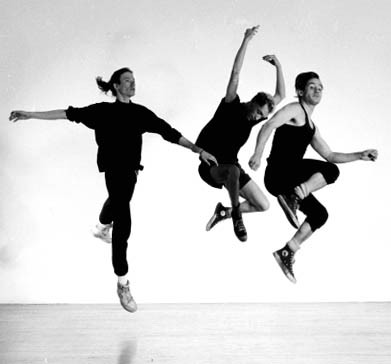
Here’s a quick overview of my background in relationship to UNCSA and the UNCSA lawsuit. I’ll also be posting my academic research and related writings based on my interviews with alumni from the dance department as soon as I can.
I attended what was then NCSA in the summer of 1978 after my freshman year at UNC-Greensboro. I then became a dance major at UNC-G the next year, eventually earning a BFA, and also studied for a year at SUNY-Purchase.
In the summers of 1979, 1980 and 1982, I performed as a dancer at The Lost Colony in Manteo, NC. In 1979, a particularly large and talented group of dancers from NCSA joined the cast and that’s when I began to find out more about Kuch and Gain and the experience of being a dance student at NCSA.
My general impression at the time is that studying as a dancer at NCSA involved a lot of verbal abuse from the majority of the teachers. It also involved negotiating sexual advances from Kuch and Gain if you were male though they also had sex with female students.
Apparently, Kuch and Gain were fairly low key during the summer so I didn’t see them at full force. But, in ensuing years, it became clear that their abusive behavior was one of the biggest open secrets in the dance world.
In 1992, I decided to pursue academic work in dance and returned to UNC-G where I received an MA in dance studies. There I worked with Susan W. Stinson, a leading figure in dance education.
My first serious research paper was based on interviews with dance students that attended UNCSA. It became a chapter in Sherry Shapiro’s Dance, Power and Difference. The paper was titled, “On Authoritarianism in the Dance Classroom.”
I later went on to write my dissertation at Ohio State, Power Relations in the Dance Classroom. This work drew on additional interviews with UNCSA alumni and sought to create a theoretical framework for understanding the abusive dynamics in the modern dance department.
References to asylums, prisons and cults all go back to that theoretical framework. I was trying to understand, in part, why students would not only accept abusive treatment but why some would even value it as a part of their professional training and personal development. I will be posting more on this topic.
At the end of the day, I am against authoritarianism and abusive behavior whether it manifests itself in political systems, educational systems, the art world or interpersonal behavior.
My friends who studied with Kuch and Gain at UNCSA all carry it with them. In some cases, decades after the experience, some will not even discuss its effects.
Returning to this topic is, for me, not just about my unfinished business but about the worldwide, historical struggle against abusive treatment of one human by another.
– Clyde F. Smith